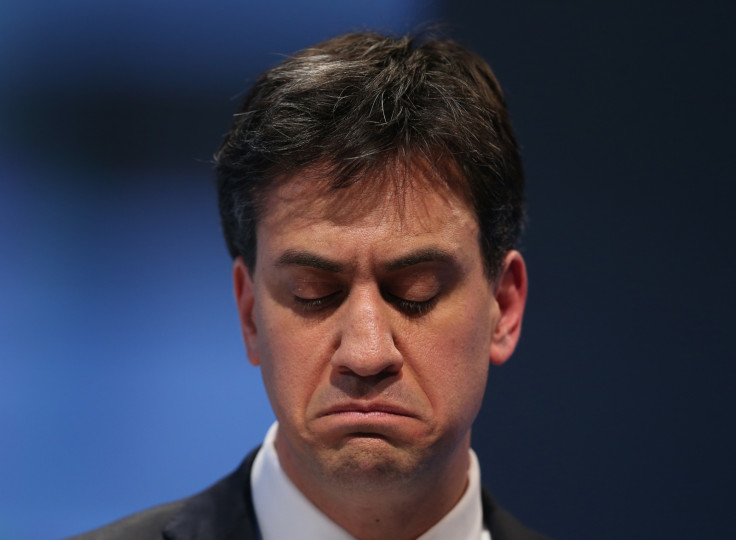Labour's Poll Ratings Drop to Lowest Level Since Final Days of Gordon Brown's Premiership

The Labour Party's support has dropped to its lowest level since the final days of Gordon Brown's premiership, according to a poll from Ipsos MORI.
The survey, which was conducted between 8 and 11 November and questioned 1,011 people, found that Ed Miliband's party dropped four points to 29% – Labour's first score below 30% of the vote since before the last general election.
The poll found that the Conservatives are up two points to 32%, giving them a three-point lead.
The results come amid a leadership "crisis" for Miliband after reports surfaced of backbencher discontent.
"The interviewing for this poll was conducted at the height of the very public discussion of a possible challenge to Miliband's leadership of the party – and it looks like it's had a significant effect on public opinion," said Bobby Duffy, managing director of Ipsos MORI.
"The Labour leadership will clearly hope that this marks a low point - they've lost the lead to the Conservatives in overall voting intention, but they're still within touching distance, despite all the negative coverage."
The research also revealed that more than five times as many Britons disagree that the Labour leader is ready to be Prime Minister than agree.
Three in four (73%) of respondents disagree that Miliband is ready to be Prime Minister, including 53% of Labour supporters; just 13% of Britons (and 35% of Labour supporters) think he is ready.
Ipsos MORI explained that this is the lowest proportion to back the leader of the opposition as ready for the premiership that we have recorded, going back to Tony Blair in 1994.
In comparison, William Hague's lowest score was 18% in May 2000, while Iain Duncan Smith had 16% agree he was ready to be Prime Minister in September 2003.
Fewer Britons think Miliband is now ready to be Prime Minister now (13%) than was the case less than a year into his leadership in May 2011 (17%).
Miliband is expected to launch a "fight-back" later this week with a speech addressing why he became Labour leader as well as unveiling his economic plan called the "recovery for the many".
The findings also come ahead of the 2015 General Election next may.
© Copyright IBTimes 2024. All rights reserved.









